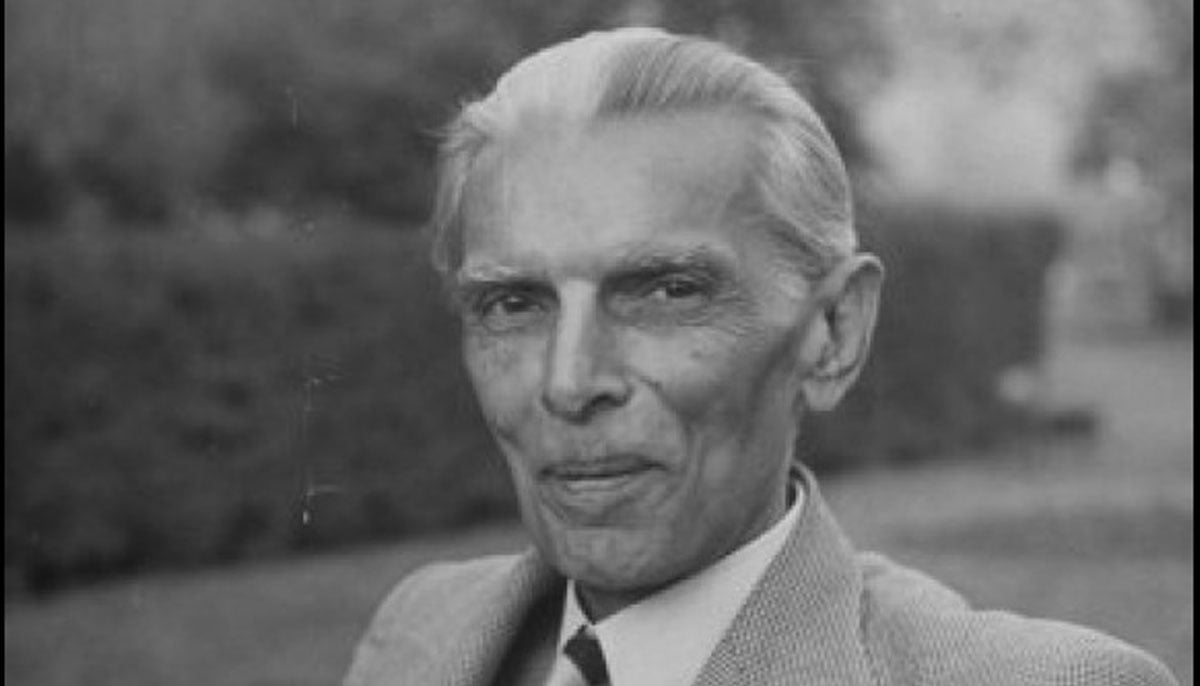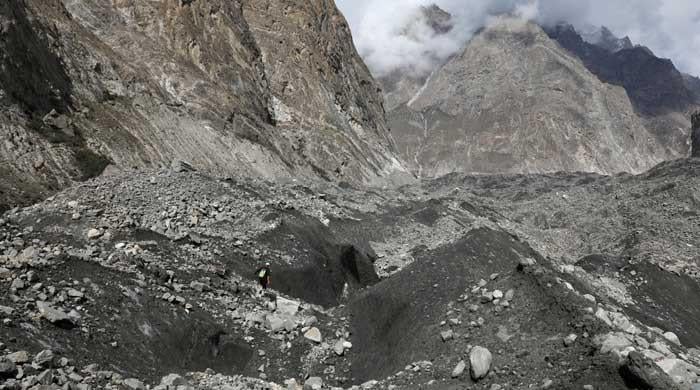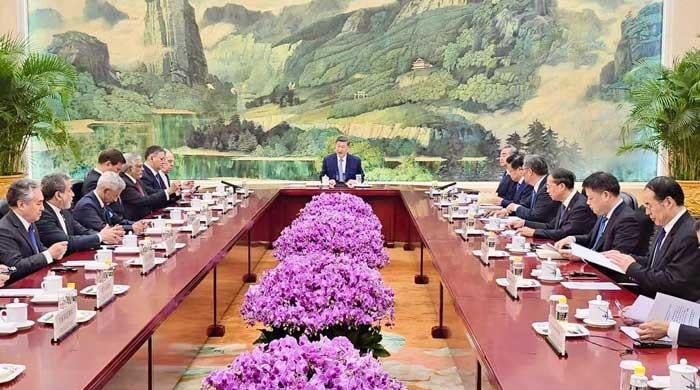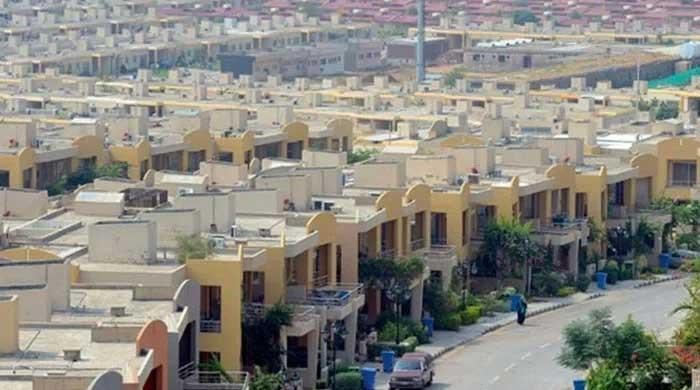An open letter to our founding father
By writing to you, I sincerely want to apologise deeply to you — the father of our dearest motherland
August 14, 2024

Dearest Quaid-i-Azam,
I can't stop thinking about you as Independence Day approaches, so I thought of writing you a letter. First of all, I want to express my gratitude to you and deeply admire you. Your charismatic persona, captivating anecdotes, and struggle for independence fascinate me endlessly. But today, I wonder how you must feel, seeing your hard-earned country under piles of significant debt. What saddens me more is that we aren't only burdened by financial obligations but also by the truth that, as a nation, we are morally bankrupt.
By writing to you, I sincerely want to apologise deeply to you — the father of our dearest motherland. Although we learned of your sacrifices in school, we regrettably took the achievements you fought for granted. We admire monuments in your honour, like Minar-e-Pakistan, Mazar-e-Quaid, and Islamia Collage, but we failed to uphold your ideals. We do celebrate you on every national occasion and our generation is immersed in countless stories about you across books, cartoons, movies, music, and documentaries, but your wise words have sadly been forgotten. I want to admit today that we failed you, and where we stand as a nation right now is unquestionably far beyond what you could have imagined.
Who would believe that the country that was founded to practice Islam would now struggle to follow its tenets? Undoubtedly, you were a visionary. You foresaw how this nation would react after your passing, which is why you consistently urged us in your post-independence public addresses to unite as one Muslim nation, transcending sects, states, and ethnicities. Yet, look where we stand today—we identify as Sindhi, Balochi, Pashtun, and Punjabi, but not as Pakistanis. I also want to mention your people, the muhajireen (immigrants), whom you brought from India. Sadly, many of them have also left Pakistan as well, feeling stateless and abandoned without you.
I also want to show you a clear picture of your capital of Pakistan, Karachi. The city of lights, which provides jobs to everyone, is in a state of despair. The political party that won 14 seats in this city and was the flag-bearer of change has didn’t make any improvements in this city. The political party that dominates Sindh neglects this city, and the political party that represents the people of Karachi only concerns itself with its survival.
Quaid, I remember you emphasised Pakistan's progress both industrially and agriculturally. However, as an agricultural nation, the increase in agricultural production isn't benefiting us; food items are becoming increasingly unaffordable! It's baffling how a country rich in livestock can have such high milk prices, around Rs220. Chicken prices have soared to Rs600, even after recent adjustments; they were even higher before! As the fourth largest producer of sugarcane, Pakistan sells sugar at Rs160 per kilogram. We can’t only simply export by considering our people's basic needs! Imagine the immense hardship faced by the 40% of people living below the poverty line in Pakistan.
This is all due to black-marketing, the curse you highlighted during your brief tenure as governor-general of Pakistan. I salute you for being a great visionary as you were deeply concerned by black-marketing at the very beginning of our journey as a nation. You understood so well that we inherited this curse from the subcontinent and cautioned your fellow citizens to avoid it. Sadly, this curse has permeated the entire system; our country is solely driven by black-marketing now.
In developing countries, progress typically occurs over time, but since your departure, ours has been marked by a severe decline in every aspect of life. Take sports, for instance; you emphasised the physical development of our youth, which led you to send 35 athletes to the 1948 Summer Olympics, the pinnacle of global sports. While we didn't win any medals then, our participation was noted. On the contrary, this year, only seven Olympians are representing a country of 236 million people.
We struggle to produce athletes even; Pakistani cricket is in its worst phase, our hockey team flounders, and our participation in the Olympics reflects the pitiful state of other sports. I'm not comparing us to anyone, but India, which gained independence alongside us, won just one medal in 1948 but has worked amazingly in the field of sports since then.
I recently visited the Lahore Army Museum, where they recreated your inaugural speech to the first Constituent Assembly of Pakistan. Firstly, I commend the designer for flawlessly reenacting the moment; it truly transports you back in time, allowing you to envision Quaid-i-Azam looking dapper while delivering his speech. I distinctly recall how passionately you emphasised the evils of nepotism and jobbery during that address.
Nepotism and jobbery are the primary obstacles blocking progress in Pakistan. These injustices pervade every sector and department, whether public or private. Sadly, in our country, Benazir Bhutto was the only woman to reach the pinnacle as head of state, whose political career was shaped by her dynamic father. Doubtlessly, BB exemplified courage and resilience, but her access to office was primarily due to her father's influence. Similarly, the only commonality between BB and Pakistan's first female chief minister, Maryam Nawaz, is that their fathers steered their political careers. Not only was this, but the only woman to serve as the Speaker of the National Assembly Fehmida Mirza was also the wife of a political leader.
In contrast, in India, a woman from a tribal community has been elected president without a political lineage. Murmu isn't alone; Pratibha Patel, India's first female president, was also a self-made politician. Political leaders like Mamata Banerjee and J. Jayalalitha are significant figures in Indian politics who have shaped the country through their struggles. I am telling you all this because you wanted women to hold key roles in this country and make a difference; however, that is only possible with political roots.
Quaid, you were consistently outspoken against discrimination faced by Muslims worldwide. Among the few global leaders, you vehemently supported the Palestinian Revolution from 1936 to 1939 against British rule. In February 1939, during the London Conference negotiations to partition Palestine, you encouraged Muslims in the Indian subcontinent to observe "Palestine Day" in solidarity despite their struggle for independence.
Your advocacy didn't end there; you also admonished British and US leaders for planning to circumvent the White Paper policy by relocating Jews from the West to Palestine, reminding them of legal obligations. Yet today, dear Quaid, as the people of Gaza endure genocide and ethnic cleansing, none of our current leaders exhibit the courage to urge the West to intervene and halt these atrocities.
I'm writing this letter to express how deeply we miss you, Quaid. We long for a visionary leader like you and lament why you left us in the hands of those lacking vision. Did you foresee the current challenges our country faces? Were these very concerns the cause of your untimely illness?
Our nation is in a tumultuous storm of political and financial turmoil; it is perhaps the darkest hour with no glimpse of dawn on the horizon. I am frightened of what we are bequeathing to the next generation: debts, injustice, and a lack of courage. Indeed, the sacrifices of our ancestors were not meant to see this ship sink. I hope anyone from the leadership understand the urgency of this moment.
I yearn for a leader who envisions a path to greatness for our country beyond mere songs and slogans this Independence Day. Quaid, you would echo this sentiment. My sincere wish and prayer are for us to unite once more as a nation, just as you envisioned—a unified force rising to new heights together.
Yours faithfully,
Hirah Siddiqui
Hirah Siddiqui is a Karachi-based writer. She has previously worked with various news publications. Hirah likes following and writing on current affairs and sports.









